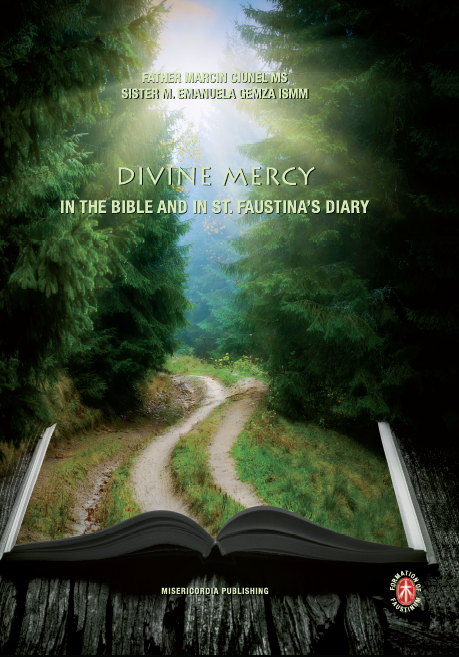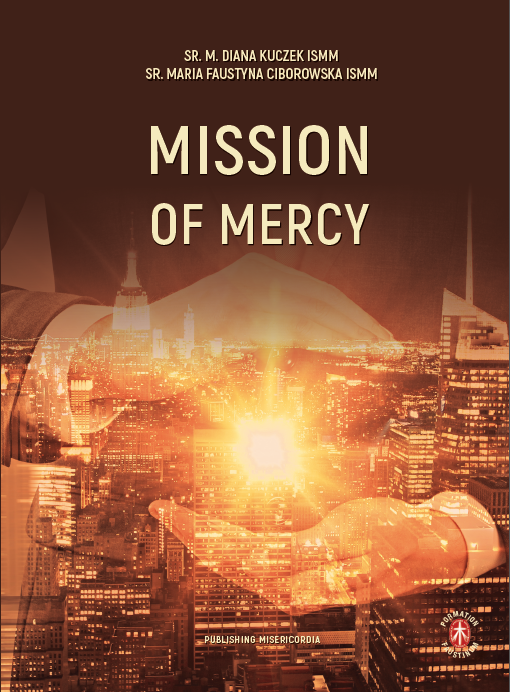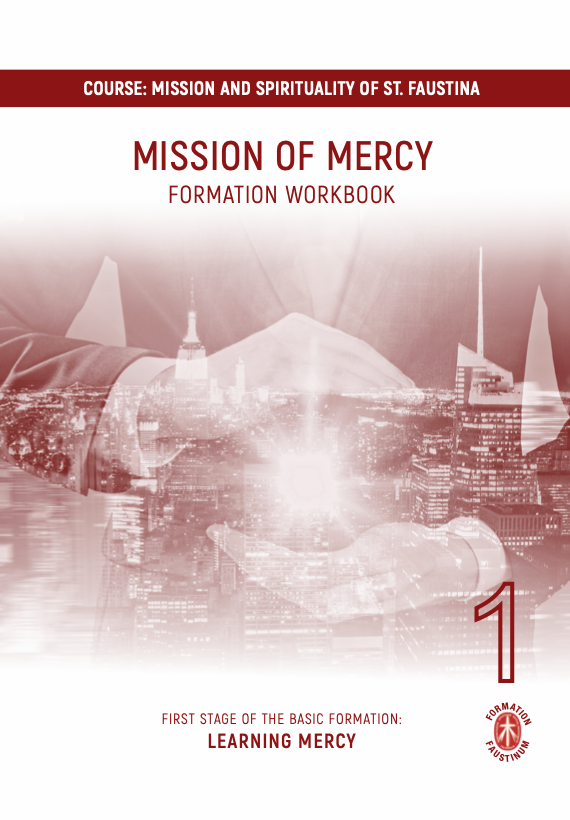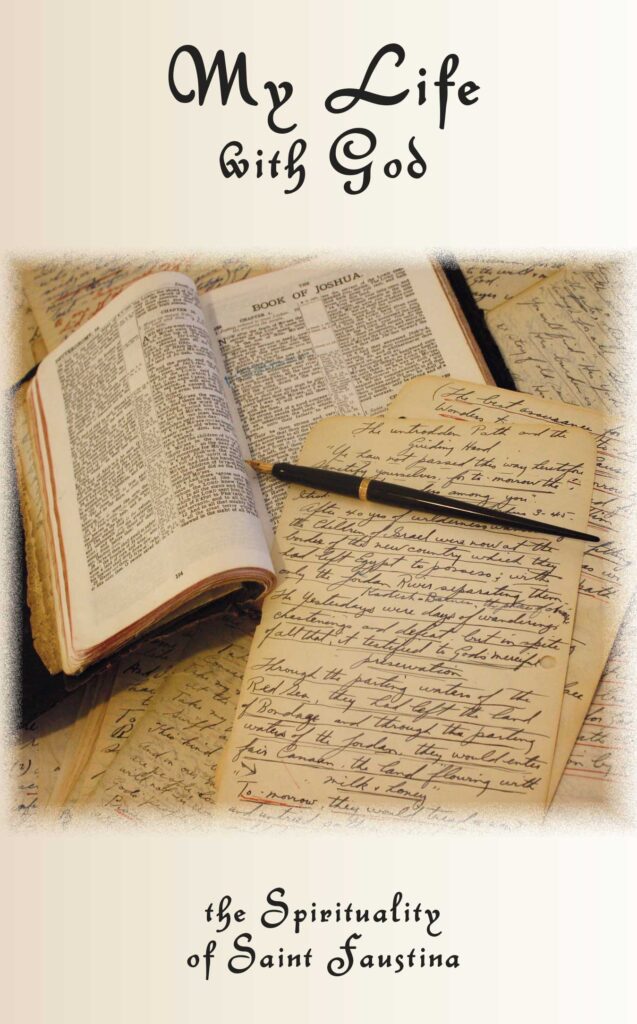
DIVINE MERCY IN THE BIBLE AND
IN ST. FAUSTINA’S DIARY
FATHER MARCIN CIUNEL MS AND SISTER M. EMANUELA GEMZA ISMM
The Bible is the fundamental source from which we can learn about God in the mystery of His mercy. Every page in the Bible—from prehistory to the end times—shows us God’s merciful love, which always takes the form of mercy when it addresses Man, who is weak and sinful by nature. Inspired by God, the Holy Scriptures speak to us about God, Who is merciful and makes the first move to meet sinful mankind.
Yet when we read the Bible, many of us are still unable to see God’s merciful love on its pages. Tainted and injured by sin, we have lost the ability which we had at the beginning to see things the way God sees them. We need to have the “eyes of our heart enlightened” (cf. Eph. 1:18 New Revised Standard Version Catholic Edition) to read the Bible and the entire history of salvation as a poem about God’s love for His children. We need individuals who—having been chosen by God and purified by grace—have received new eyes that allow them to see more deeply. Some of the people who have been granted this gift are the Saints who have been enabled to see and read the sacred writings more profoundly, and St. Faustina is certainly one of them. She is a gift from God for us; and her extraordinary charism of knowing and spreading the knowledge of God’s mercy, as well as her deep mystical experience, which she describes in her Diary, may serve as a special commentary to the Scriptures.
The purpose of this book is not only to help us to know and understand the mystery of Divine mercy, but above all to help us personally encounter the God of Mercy. Exactly this personal experience of God and His merciful love can convince us of the unchanging truth that we have always been loved, are loved now, and will be loved forever.
Mission of Mercy
Sr. M. Diana Kuczek ISMM and Sr. Maria Faustyna Ciborowska ISMM
God, who knows everything and is mercy itself, prepared in advance the remedy and means of salvation for mankind because He desires the salvation of every human being. He has also acted in this way in our time, by communicating the message of Mercy to a simple nun, Sr. Faustina Kowalska, in the silence of the monasteries of the congregation, and then sending her on a prophetic mission to the whole world. To this work, which God initiated in the life of Sr. Faustina and through her in the Church, He invites everyone; in a special way, He invites the Congregation in which the Apostle of Divine Mercy lived (and which is the depositary of her spiritual legacy), and the members and volunteers of the Faustinum Association who are His closest collaborators in the apostolic mission of making God’s merciful love present in the world through the witness of life, deeds, words, and prayer.
Mission of Mercy.
FORMATION WORKBOOK
Sr. M. Emanuela Gemza ISMM
This first workbook is an important complement to the textbook “Mission of Mercy” of the Faustinum formation programme (from the first stage of Basic Formation, the Course: Mission and Spirituality of St. Faustina). It contains a number of practical spiritual exercises, based primarily on prayer with the Word of God and the reading of St. Faustina’s ‘‘Diary”. It is prepared in such a way that, after reading one chapter from the ‘‘Mission of Mercy” textbook over a few weeks, until the reading of the next chapter, one should then take up the workbook and complete the tasks indicated for a given week or the whole month. We encourage you to avoid rushing. Instead, it is worth setting aside time for personal formation regularly. It is really a good investment!
For the internal use of the
Association of the Apostles of Divine Mercy “Faustinum”
My Life with God
The Spirituality of Saint Faustina
The spirituality of Sister Faustina is very healthy, because, on the one hand, it guards against religionism (that is, against practicing the Christian life only in prayer), since it calls for performing deeds of mercy; and, on the other hand, it prevents practical horizontalism (which would reduce religiousness to performing charitable works), since her spirituality requires a living contact with God. In the school of Sister Faustina, we can thus acquire a solid knowledge of the most difficult subject; namely, the art of living in the spirit of childlike trust toward God and mercy toward neighbour. At the heart of this spirituality lies the knowledge and contemplation of the mystery of Divine Mercy in everyday life; its nourishment and strength is love of the Eucharist, its certitude – obedience to the Church, and its consolidation and model – devotion to Our Lady of Mercy.




